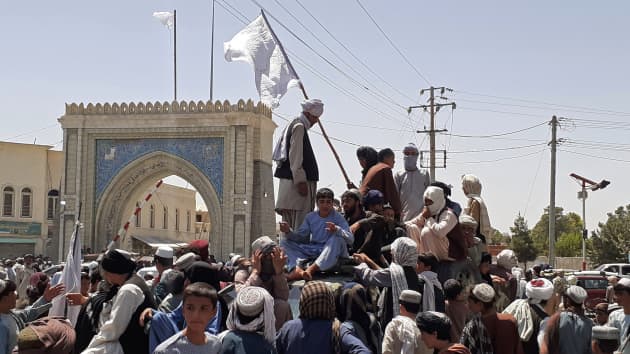
It has been 20 years since the terrorist attacks on the World Trade Center that struck at the heart of the United States. For all its international cooperation and vast loss of life, what was the longest war in American history for?
The Taliban, an insurgent group, have taken over most of Afghanistan. With the collapse of the civilian government that the U.S. had spearheaded and supported, the country may be on the path to becoming a “failed state” fought over by rival military factions.
The capital has been plunged into mayhem as foreign residents and citizens attempt to flee the country, with local people fearing a return to a reign of terror and public executions. The international community must unite and call on the Taliban to exercise restraint to protect human life above all.
The United Nations Security Council held an emergency meeting on Aug. 16. Key nations such as the United States, Russia and China should respond quickly to the need for instating a reasonable system of governance in Afghanistan.
The United States bears grave responsibility. After exerting influence by supporting the Afghan government for 20 years, this kind of disorderly and rushed withdrawal of the U.S. Armed Forces is nothing but actions conducted by a superpower in its own interest.
The international community showed a degree of understanding for America’s use of military force in the immediate aftermath of the 9/11 attacks. This force was justified as a way of keeping the Taliban, who provide cover for terrorist organizations, from political power, and to protect the provision of humanitarian aid to citizens.
The governance of this multiracial nation was far from stable, despite the Taliban’s temporary retreat. Despite an American investment of 9 trillion yen (approximately $82 billion) into strengthening the Afghanistan government’s military, the failure to establish any fundamental democratic system allowed corruption to spread.
President Joe Biden indicated that it was down to the citizens of Afghanistan to protect their country, and that America’s objective to “keep Afghanistan from becoming a base from which attacks could be continued against the United States” had been “achieved.” This is hardly convincing. The British defense minister voiced concerns that terrorist organizations “will probably come back.”
The Taliban’s recapture of political power by military force after having been overwhelmed by the U.S. Armed Forces clearly demonstrates the limits of America’s global war of terror.
Terrorism springs forth from conflict, inequality and poverty, and we cannot build a safe world while failed states continue to exist. America has arrived at a point of exhaustion after failing to apply lessons that should have been learned from the 9/11 attacks and engaging in action that overemphasizes the military aspects of conflict resolution.
In the U.S., criticism of the government abounds, describing the exit from Afghanistan as the most humiliating defeat since the Vietnam War. However, now is not the time for inward-looking debate and pointing fingers.
In the 1990s, the Taliban excluded women and girls from education and banned music, movies and other art. If we yet again permit governance that does not acknowledge the sanctity of human rights and equality, then no one will believe in the values of freedom and democracy which America promotes.
That would be a true defeat for America.

Leave a Reply
You must be logged in to post a comment.